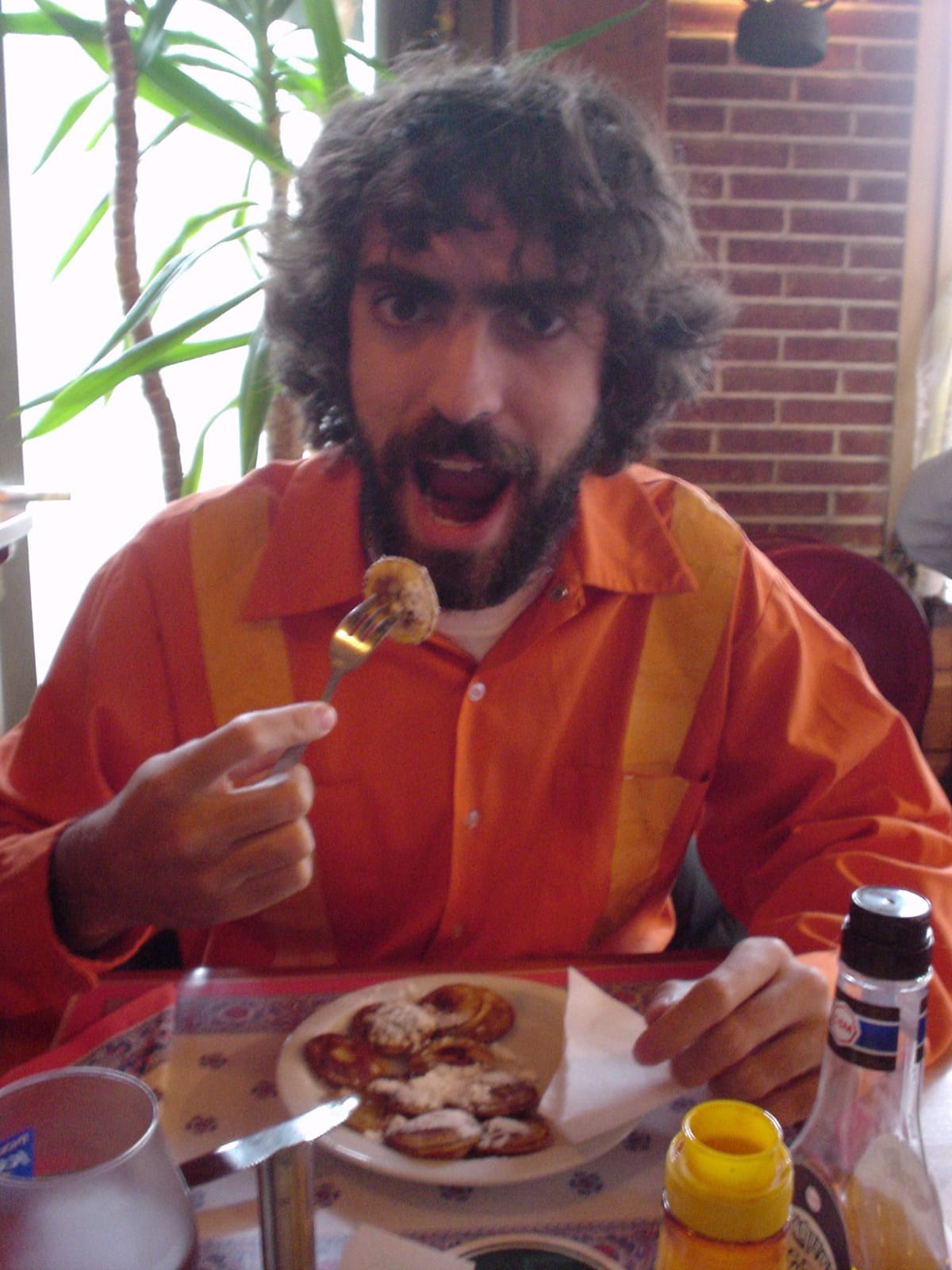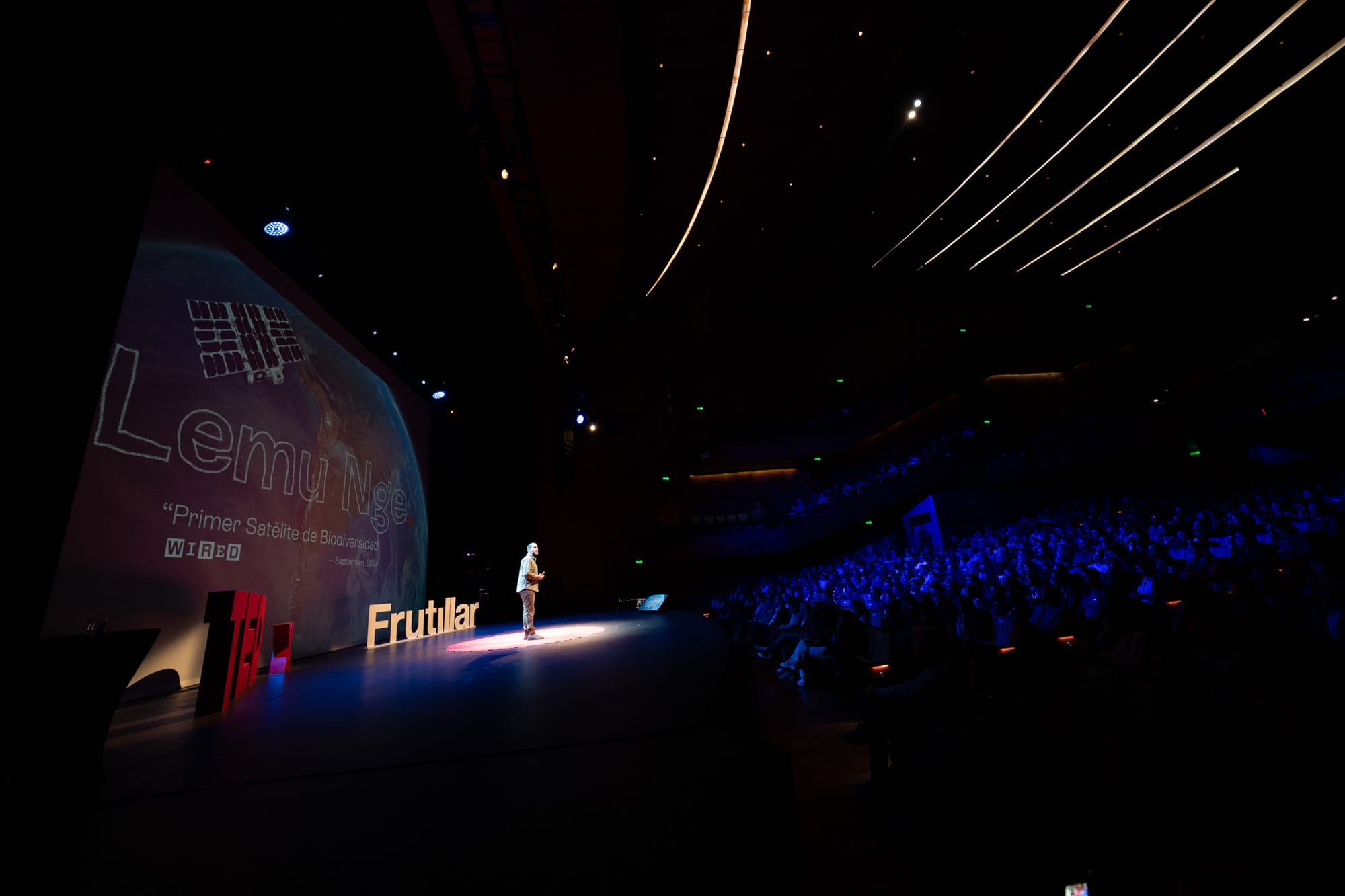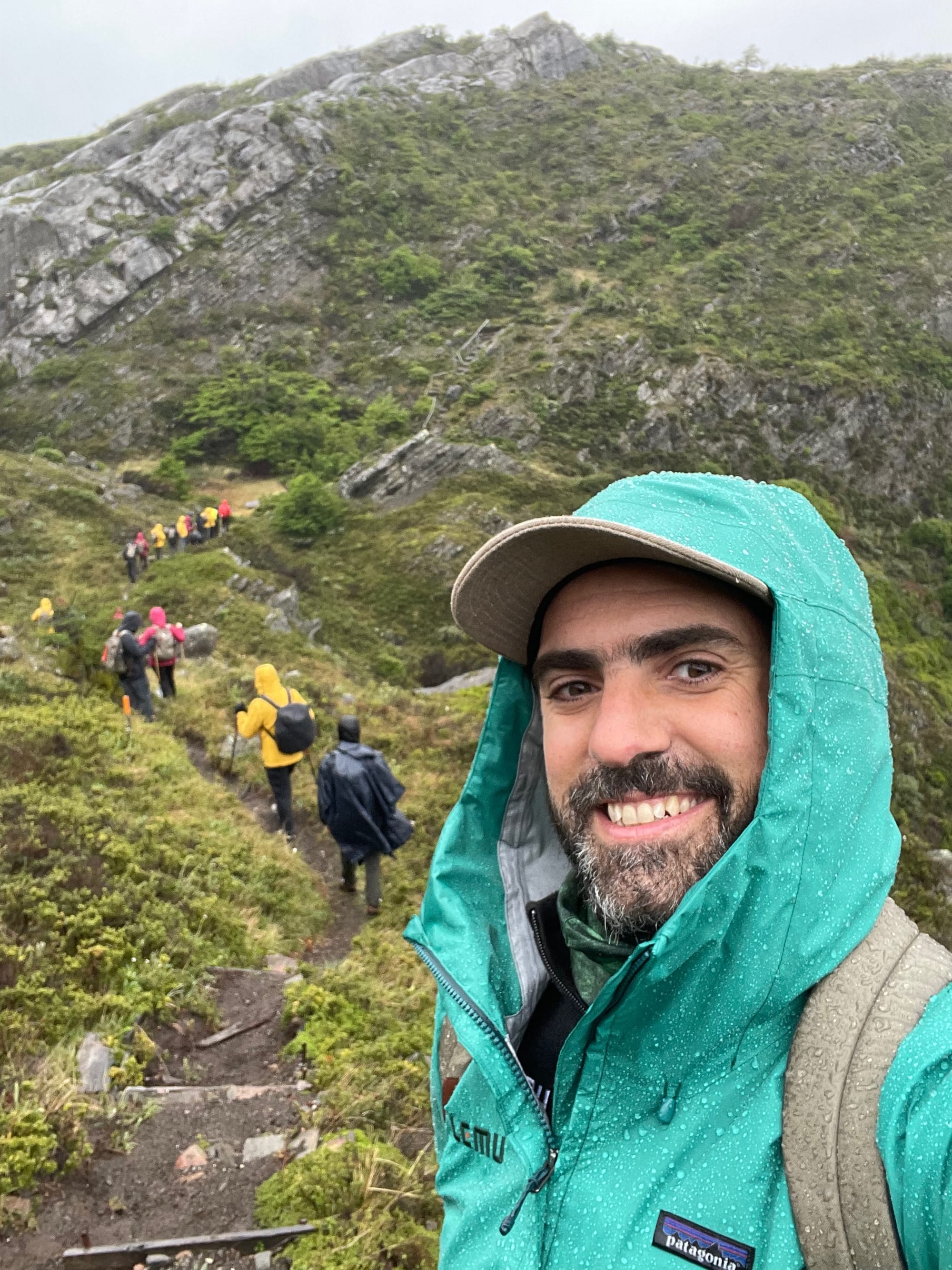Blogging Towards Political Power
An interview for The Santiago Times by Anne Pallisgaard.

A little bit of content for all the gringos in the audience. A couple of weeks ago I was interviewed for The Santiago Times, an English-language newspaper for — as its name implies — Santiago. This is the second time I am interviewed by the newspaper, I just found the other one and will be publishing it in the next few days. If you prefer you can download the PDF (100 KB). Thank you Anne!
A Talk With Chile's Star Blogger - Leo Prieto
By Anne Pallisgaard (Sept. 19, 2007)
Blogging on the Internet is an increasing powerful tool in the political landscape of many counties. And nobody knows that better than 27-year-old Leo Prieto - a self-taught professional blogger, website creator and Internet communications developer. He receives a regular pay check from LAN and other Chilean companies, and is the founder of the successful technology blog FayerWayer, a technology webpage created over a weekend — a response to other media's lack of real interest in new technology.
Leo's thoughts on technology, government and internet communications earns his site one million readers a month, making him Chile's most influential Internet blogger and spokesperson.
"The internet is knowledge and it is the most amazing communication platform ever," Prieto tells the Santiago Times one sunny afternoon. "It is such an amazing medium, you can do everything with it."
SANTIAGO TIMES: Why was it important for you to start the FayerWayer blog?
LEO PRIETO: When traditional media talk about technology, they generally just use a press release, rewrite it and publish it. There is no one telling you whether this computer is good or bad, if it is not the best on the market or if the price right. With the blog, we can use a different language. We use swear words and write more directly to our readers. This way we build a community, writing about technology. And we have a very strong message. We know that we're the lucky ones, having the Internet. But we want more people to have access to the Internet. Chile's government is really proud to have a 30 percent of the country online, but this percentage is actually really low, even if it is the highest in the Latin American region. We promote free software and free access on my blog. Not as in "free beer," but as in freedom to use the technology.
ST: How is internet blogging affecting politics in Chile?
LP: Having blogs is having one more voice talking about a subject. In the old days you had a bunch of newspapers and television shows with their own agendas, left-wing or right-wing. This means that they would treat certain subjects in a specific way, and some readers or viewers would not know about this. With blogging, everyone can have their own media. When they speak, they say honestly who they support, or if they have a certain political, religious or economic view on some matter. And most people only represent themselves. The blogs are much closer to the public and they can actually affect the political agenda.
ST: How can this happen?
LP: Some months ago it became known that Chile's government had signed an agreement with Microsoft, for the company to run everything in the government systems. All the municipalities, the schools, the hospitals and social security would work on Microsoft platforms. This means that all citizens are forced to buy Microsoft products, while the government is saying: "We don't need a software industry in Chile — we'll just use Microsoft."
So I wrote an article on my blog about this. I was really pissed off. While writing this, my partner, Tomás Pollak, sat next to me and suggested that we needed to build a digital freedom movement! We were just joking on the website, but comments started showing up on the screen almost immediately saying "I can help, I'm a lawyer, I have some free time, I'm a journalist," and so on. By the very next morning, my partner had created a whole new website. We had a domain, a blog and a petition created in 24 hours. Still, this was not our project, but a community project. And our message was "get organized!" And after just 10 days, representatives of this group were speaking in front of Congress. Thanks to a blog.
ST: What was Congress' reaction to this new movement?
LP: The most important thing that happened is that the Minister of Economy commented in the blog, saying that he was reading it and participating in the discussions. Also, the very same night that the movement was created from the blog, I got a call from the top advisor to the Minister of Economy asking me what our demands were. Senators and deputies (congressmen) have invited people from the movement to talk about the blog. There are always different people going to the meetings, showing the diversity of the movement: young, old, poor, rich, student and workers. This is true democracy with no one leader. This is a new powerful thing that could only happen thanks to the Internet, the community and technology.
ST: You talked about the blog representing different people, including young people. How do you see the young people of Chile participating in politics?
LP: Young people don't trust politicians. I don't either. You always have the sense they only care about you when they need your votes. This is the same all over the world. This Sunday I was in Iquique, giving a lecture to 100 young students. And they said they don't trust their teachers or any authority figure because they don't think that they are honest. But they thought that I was very honest. I'm proud of that. I never really thought that honesty was really that important to them. Most young people don't want to get involved in politics, but they are getting involved without knowing it.
ST: Do you think the Internet can help get more young people involved in politics?
LP: Absolutely. It can help young people voice their opinion without their really knowing that they are involved in politics. They can join communities or vote on certain topics. But they think they are "just" joining communities of like-minded people, and not practicing politics.
ST: Is it important, then, to say that this is NOT a political activity to get young people to join in?
LP: I think you have to be very honest. If you are doing political things, you have to say it. The digital technology movement, for example. I dont think this is a political movement. But when I analyse the movement , it certainly is, since it is trying to change policies. But it is not a traditional kind of politics. No one wants to get a vote out of it. No one wants to occupy a powerful position. This is what happens in traditional politics, but this is a movement, not a political party.
ST: Can you see any democratic tendencies when people use the Internet?
LP: One of the things I love about the Internet is the way it was created, the way it has evolved. It is very anarchistic. No one rules the internet. There is a base and you are sort of creating democratic practises on top of an anarchistic system. The base, then, ends up being truly democratic. Building communities is the big Internet secret, as it is allowing people to interact. I like to call it the two way Internet. Traditionally, we have been consumers and just a few have contributed. But today many people are getting involved. Even just going on Wikipedia (a free on-line encyclopaedia) to fix one small spelling error, you are contributing and not just consuming, which is really democratic.
ST: But you just talked about the Microsoft monopoly. Doesnt that limit internet users?
LP: Yes, it does. The danger is that, when using the Internet, you need compatible technological equipment. Today, you can log on the Internet from your cell phone or from cars, even. But the personal computer is still monopolized by Microsoft. This is a closed system and having this monopoly is a danger because any one using the system has to work according to Microsoft, which makes the company increasingly powerful.
Many governments around the world are ignorant of this. I hear our own President Bachelet saying that one of her four pillars of government is getting people closer to the information society using the Internet. This has not happened yet, and she only has two more years left. The government keeps saying: "We are the most technology developed country in the region," but our region is, after Africa, the second least technologically developed part of the world. So being a leader here means nothing. It is like South Africa saying they are the leader of Africa. You don't have to compare yourself with the ones that doing worse. Brazil, Norway and Japan understands the danger of having an entire government system working under one company, and especially when that company comes from a foreign country. You can't control it. Imagine if we went to war with the United States. Microsoft could cut off the entire system. And the majority of all countries are run on Microsoft computers.
ST: How are Chilean policy makers handling technological developments?
LP: They are all really worried about turning Chile into a more developed country. But all their policies are concerned about protecting mining, cobber, forest, salmon and wine industries, basically all the natural resources. So if they are saying that we are the most technologically developed country, why is there is no Minister of Technology? We have a Minister of Mining! Why are they signing a deal with Microsoft, killing all potential software industries in Chile? It is so backwards! If the government spent half of the amount of money it is now spending on the Transantiago fiasco, every single kid in Chile could have a computer. It could revolutionize education.
ST: Can the internet and blogging can help change government?
LP: The people in power are increasingly reading and listening to blogs. And they are participating. The top boss of telecommunications in Chile comments on FayerWayer. We are getting heard — this is the most amazing thing. After I publish something important on the FayerWayer blog, it shows up in the newspapers or on TV a few days later. The next government will probably have a blog too.
ST: What would you like to se happening?
LP: There are four pillars that would help the next generation. First, we need to change education; people have to know what they can do with technology and learn about it in school. Second, we need equipment and we need to give people access to computers. Third, we need cheaper and higher speed for Internet in Chile. And, finally, we need free access to software and free information. It is of no value if the next Paulo Neruda wants to write the most amazing poems ever, but he can't write them on his computer but he has to pay US$200 for Microsoft software.
ST: So, you think that the government lacks ambition when it comes to technology?
LP: First of all, I think the government is ignorant of technology. It has bad advisors who give in to pressure from lobbies and companies. The government does not know what it is doing. It is focusing on all the non-renewable natural resources, which can only last so long. One day copper WILL run out. I've heard this saying - that maturity is having the capability to being able to look ahead, to have a long-term vision. This is when you realize that this country is very immature.



